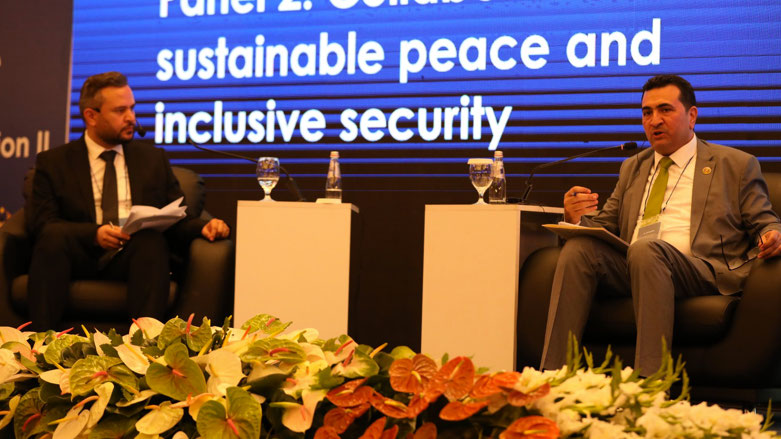Lack of IDs for children complicates repatriation of Iraqis from al-Hol: official

ERBIL (Kurdistan 24) – The biggest obstacle to returning Iraqi refugees in northeast Syria's al-Hol camp is the lack of identity documents for Iraqi children living there, according to the Chairman of the National Committee on the Implementation of the National Strategy to Prevent Violent Extremism Ali Abdullah Albedeiri.
"The decision from the Iraqi government is to return all displaced persons, including the Iraqis present in al-Hol camp," Albedeiri told Kurdistan 24. "The problem that is confronting the return process is fundamentally the issue of children. Some of these children don't have identity documents from their fathers or mothers."
"Also, there are some technical problems related to the movement of families because al-Hol camp is on the Syrian side, so this requires high-level coordination so they can select a group whom they can allow to enter into rehabilitation," he said.
Albedeiri was speaking on the sidelines of a conference on counter-extremism by the Dutch NGO Spark on May 30.
Read More: Dutch-funded conference emphasizes importance of youth for countering radicalization
According to data from the UN, al-Hol is the largest camp for refugees and internally displaced people in Syria, hosting about 56,000 people. The majority of them are Syrians and Iraqis.
Last Wednesday, Iraq repatriated around 700 Iraqis from al-Hol camp in coordination with the local Kurdish-led authorities in northeast Syria to Ja'ada Camp.
Moreover, last week the Kurdish-led Syrian Democratic Forces (SDF) also handed over 50 Iraqi male detainees to the Iraqi government.
Read More: Iraq repatriates 152 Iraqi families from Syria's al-Hol camp
Albedeiri pointed out that there is a "lack of availability of comprehensive information about all those living in al-Hol."
"This presents a big problem because those who have complete information and a database enter after they are chosen," he said. "But the ones who do not come under a database, this is considered a big problem because they can't enter into rehabilitation while they don't have identity documents or are not on a database."
"It's not possible to know who this person is, where his family is, where his home is, so that he may return," he added. "So, the issues are the lack of identity documents and clear information, in truth also the children, a problem that is still present."
"Until now, the Iraqi government has been looking into a solution in coordination with the legal experts."
Moreover, the official said ISIS is also active in al-Hol.
"There are families connected with Da'esh (ISIS) in al-Hol. There are places to disburse sums of cash to the inside of al-Hol," Albedeiri said. "There is a transfer of money from the outside to the inside of al-Hol."
Read More: Al-Hol camp is a threat to Iraq's security: Iraqi National Security Adviser
He emphasized that the situation in al-Hol is very dangerous and "a threat to Iraqi national security."
"So the Iraqi government took a decision that there must be work on the matter and for families to begin to return gradually and in particular the families not involved in terrorist work," he said.
He also explained that there are programs for the rehabilitation of returnees.
"The Ja'ada Camp camp has become a base with the participation of international NGOs (non-governmental organizations) and migration," he said.
"This place has become a place of rehabilitation from among the rest of the camps of displacement. They enter into these rehabilitation programs in the Ja'ada Camp before returning to the places of former residency."
